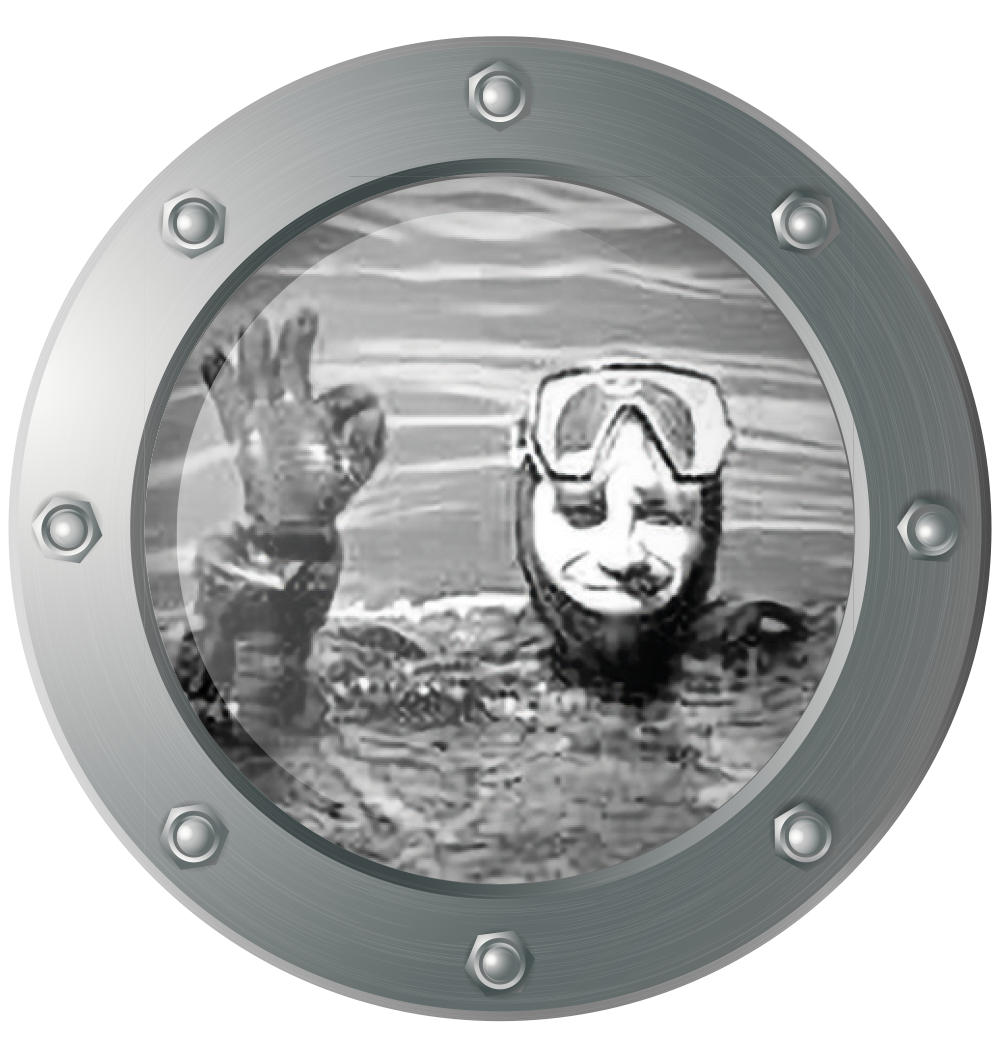What diving taught me about trust
Written by Simon B., Officer with German Bundeswehr
You can train as a diver in the German Military and one day I decided to do it.
We first spent several weeks in an indoor pool learning how to use the equipment, we learned the basics of diving medical safety and were generally made fit. Because if you make a mistake underwater, you often pay a high price. At some point, we were finally allowed to go into the sea. Anyone who thinks that diving in the Baltic Sea is quite nice should think again: We started our dives in single-digit water temperatures under grey autumn skies. It was surprising that we saw almost nothing from a water depth of around 10 meters. One of my dives went to a depth of over 30 meters at noon. It was bright at the top and underwater I couldn’t see my hand in front of my eyes and was freezing bitterly. At the time, I thought to myself: “Simon, what went wrong that you ended up here?”
It was good that we were always connected with a rope to the surface. When you’re diving, you’re always connected to a person on deck, or you dive in pairs and are connected to each other. If you are connected to someone above, you always dive in such a way that the rope remains taut. The person on deck then uses the rope to signal in which direction you should dive or whether you should come back. If you have found something that you should look for on the seabed, you can also give a signal upwards.
These dives always remind me of faith. When diving, you always have to stay connected for your own safety, you have to pay attention to the smallest signals from above. It is similar with God: those who stay connected can pay attention to guidance from above. But if you cut the connection, you have to manage on your own.
Trust is essential here. If the “line man” is not paying attention, the equipment is not in order or I don’t have the right tools with me, then I have a problem. So I have to trust that even in the darkest and coldest conditions, someone up there knows where to go.
The Bible says in Psalms 37:5: “Commit your way to the LORD trust in him and he will do this.” What is translated here as “trust” is called “betach” in Hebrew. “Betach” is the basis of today’s word for “security”. But it can also be used as an answer when I want to say “But surely!”. Entrusting our path to God means finding security in him. Or, as it says in the original, to find security “on” him. As if I were building on rock.
In short, those who trust in God will find security and all will be well.
The centurion from Capernaum, whom we meet in Matthew 8:5-13, had a similar experience. When his servant is ill at home, he goes to Jesus to ask for healing for him. Jesus offers to come with him and heal the servant. The officer replies: “Lord, I do not deserve to have you come under my roof. But just say the word, and my servant will be healed.” Jesus is amazed by this faith. He even says that he has never found such faith in anyone else in Israel. But what does this extraordinary faith entail? The centurion sees Jesus and recognizes his incredible authority. He understands that Jesus is so exalted that he only has to speak “one word” from a distance for his sick servant to be healed.
It is a trust in the authority of Jesus to be able to help in a desperate, humanly speaking hopeless situation. Yes, to be able to help in a way that others may not consider possible. And Jesus rewards our trust. This can apply to all kinds of life situations, or even when it comes to other people. The Bible verse from the Psalms quoted above is a promise. A promise, a hope. But the order is important. First comes trust, then he will do well. Similarly with the centurion from Capernaum: faith and trust in Jesus are the basis for the miracle to happen.
Let’s get back to diving. The first time I climbed the ladder from the boat into the ice-cold water, I had to trust that everything would be okay. And I also had to trust on all subsequent dives, which then became easier and easier for me. My buddy at the top was in charge of me. He was the one who had a clear view, kept an eye on dangers and also the time. Yes, because at some point I could no longer stay down because I was running out of air. However, it wasn’t me who ended the dive, but at some point the signal came from above and I was able to get some fresh air again. It’s the same with God: sometimes he trusts us to do things that we don’t understand, where we can’t see anything or where we simply have to do what he has taught us beforehand. Sometimes we are lonely, sometimes together, but always connected. Those who trust in God can always trust that help and guidance will come at the right moment.
Think about your own life. What area of your life can you commit to God today? Or what have you already entrusted to him and perhaps you have been waiting for some time? In the cold, lonely and dark moments of life, we can trust that we will be okay if we stay connected. Often, we have to wait, often we have to go to places we don’t like, while others are supposedly doing well while sitting in the warmth.
The next time you find yourself in a difficult situation, I would like to encourage you to stay connected to God. You will experience how he can guide you even in the dark and he will not overwhelm you. It will not go deeper, further or longer than you can bear. And at the end of trust there is always the promise that things will turn out well. This promise also applies to us today.
* * *

Simon B.
Simon B. is an Officer in the Bundeswehr. He has been a Christian for many years. He is married with two children.





